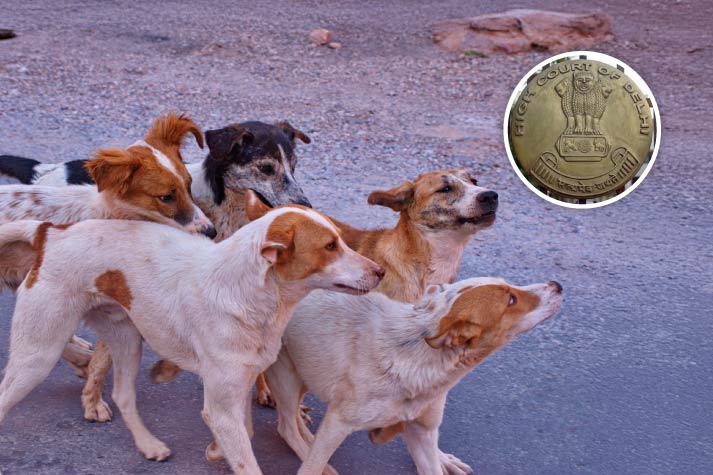
30 May
Delhi govt to draft policy on community dogs: CM
New Delhi: Following a directive from the Delhi High Court to frame a structured policy for the management of community dogs, Chief Minister Rekha Gupta on Wednesday confirmed that her administration is already working on the matter. She assured that all concerned parties will be engaged to chart out a sustainable and inclusive plan.
“This is a problem for everyone — the public and the voiceless animals too. We are looking to create a platform which will cater to residents as well as those working for animals,” Gupta said during a public interaction in her constituency.
Acknowledging the limitations of existing laws, she explained, “There are laws — dogs can’t be kept in shelters and they cannot be removed from their streets. We are searching for a long-term solution, one that causes neither residents nor animals any distress. It is a policy matter...”
The High Court's observation came on Tuesday, when Justice Mini Pushkarna, citing a spike in dog bite incidents across Delhi, instructed the city government to develop a policy that supports the institutional rehabilitation of community dogs, facilitating their gradual removal from public areas.
“A policy decision must be taken by stakeholders to ensure community dogs are rehabilitated and phased out from public roads and streets,” the court had said. Legal experts, however, noted that such a directive could potentially clash with current legislation.
Currently, authorities operate under the framework of the Animal Birth Control (ABC) Rules, 2023, which fall under the Prevention of Cruelty to Animals Act, 1960. These rules explicitly prohibit the displacement of community dogs, except for sterilisation or vaccination purposes. Dogs picked up for such procedures must be released back into the exact locality from where they were taken, with comprehensive records maintained for each one.
Animal welfare advocates argue that drafting a broader policy might be not only “legally untenable but also impractical.”
Instead, they point to more foundational gaps; deficiencies in infrastructure and poor implementation of the ABC programme as the root causes that must be addressed first.
“This is a mature stand by the Delhi chief minister. While judicial or executive officers may seek short-term, quick fixes, no government in Delhi till date has worked on strategies to resolve the problem scientifically in the long run — beginning with proper implementation of ABC rules, designating feeding points, more funds and proper awareness drives,” said Gauri Maulekhi, trustee at People for Animals (PFA).
Sonya Ghosh, a long-time activist who has moved multiple petitions in court on this issue, said that before any new framework is introduced, existing veterinary infrastructure needs to be overhauled.
“There are already 77 veterinary hospitals under the animal husbandry department, but none of these hospitals is being utilised for the ABC programme. Until sterilisation is done effectively, we cannot find a solution,” Ghosh said, adding that she’s also worked with the Animal Welfare Board of India (AWBI) on identifying dedicated feeding spots. “This is also another challenge — residents resist the need to set up feeding points which leads to conflicts.”
Resident Welfare Associations (RWAs), meanwhile, pushed for a middle path. Atul Goyal, representing URJA United RWAs Joint Action (a federation of local RWAs) stressed that defining feeding points in each neighborhood could be a crucial step.
“The issue of community dogs has become very divisive, with people on both sides. The problem has arisen because of lack of implementation of norms for sterilisation and feeding points. In case of an extremely aggressive dog, some kind of shelter home may be developed but this cannot be done for all dogs. We don’t want a society either where there are no dogs,” he said.
Other RWA leaders proposed ramping up sterilisation and immunisation drives.
“This should be the top priority,” said BS Vohra from the East Delhi RWA joint front. “If a significant population is sterilised now, the impact will become visible 2-3 years. In many places in East Delhi, it has become impossible to step out alone during night due to packs of dogs, but relocation is not a solution,” he added.
Echoing this, Ashok Bhasin of the North Delhi RWA pointed out that sterilisation campaigns by the Municipal Corporation of Delhi have failed to keep pace with population growth. “MCD also picks up dogs from one site and drops them at some other locations 1-2km away. There should be a priority to vaccinate and neuter the dogs,” he said.
Animal welfare worker Sunayana Sibal, who has experience with ABC implementation and pet shop regulations, said that the current infrastructure supporting ABC operations in the city is deteriorating rapidly.
“Unless the ABC program is implemented in its true earnest, this issue is bound to fester and flare up in a cyclical manner,” she said.






AUTHOR’S BIO
Carry My Pet
Passionate pet enthusiasts and globetrotters, dedicated to easing furry friends' journeys worldwide. Penning tales of compassion at CarryMyPet, where every relocation is a tail-wagging adventure.